Related Research Articles
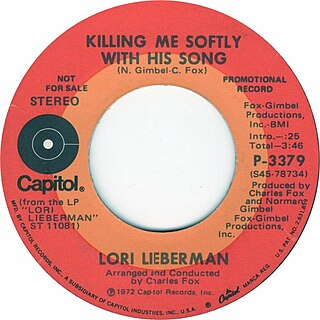
"Killing Me Softly with His Song" is a song composed by Charles Fox with lyrics by Norman Gimbel. The lyrics were written in collaboration with Lori Lieberman after she was inspired by a Don McLean performance in late 1971. Denied writing credit by Fox and Gimbel, Lieberman released her version of the song in 1972, but it did not chart. The song has been covered by many other artists.
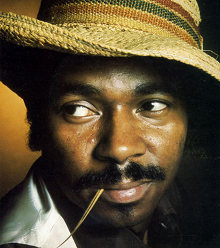
Van Allen Clinton McCoy was an American record producer, arranger, songwriter and singer. He is known for his 1975 internationally successful hit "The Hustle". He has approximately 700 song copyrights to his credit, and produced songs by such recording artists as Brenda & the Tabulations, David Ruffin, The Stylistics, The Presidents, Faith, Hope & Charity, New Censation, Gladys Knight & the Pips, Aretha Franklin, Peaches & Herb, Lesley Gore, and Stacy Lattisaw.

"You Give Good Love" is the debut solo single by American singer Whitney Houston for her 1985 eponymous debut studio album. It was written by La Forrest 'La La' Cope and produced by Kashif. When La La sent Kashif a copy of the song, originally offered to Roberta Flack, he thought it would be a better fit for Houston and told Arista Records he would be interested in recording with her.
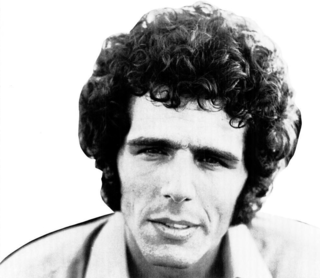
Robert Bloom was an American singer-songwriter. He is known best for the upbeat 1970 hit, "Montego Bay", which was co-written with and produced by Jeff Barry.

"The First Time Ever I Saw Your Face" is a 1957 folk song written by British political singer-songwriter Ewan MacColl for Peggy Seeger, who later became his wife. At the time, the couple were lovers, although MacColl was still married to his second wife, Jean Newlove. Seeger sang the song when the duo performed in folk clubs around Britain. During the 1960s, it was recorded by various folk singers and became a major international hit for Roberta Flack in 1972, winning Grammy Awards for Record of the Year and Song of the Year. Billboard ranked it as the number-one Hot 100 single of the year for 1972.

"How Am I Supposed to Live Without You" is a song co-written in 1982 by Doug James and Michael Bolton. The track was originally recorded by Laura Branigan in 1983, charting at number one in both the US and Canadian Adult Contemporary charts. Bolton later recorded his own version of the song that topped the US Billboard Hot 100 and became a worldwide hit.
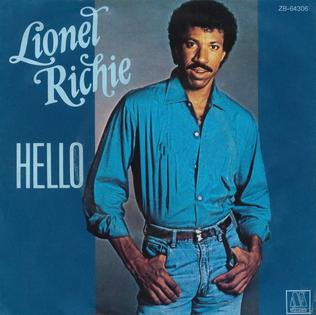
"Hello" is a song by American singer and songwriter Lionel Richie. Taken as the third single from his second solo album, Can't Slow Down (1983), the song was released in 1984 and reached number one on three Billboard music charts: the pop chart, the R&B chart, and the Adult Contemporary chart. The song also went to number one on the UK Singles Chart for six weeks.
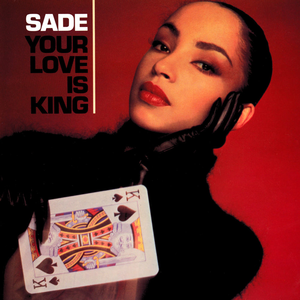
"Your Love Is King" is a song by English band Sade from their debut studio album, Diamond Life (1984). The song was written by Sade Adu and Stuart Matthewman, and produced by Robin Millar. It was the album's lead single in the UK, released in January 1984, and the third single in the US, released there circa June 1985.
"Tonight, I Celebrate My Love" is a romantic ballad written by lyricist Gerry Goffin with Michael Masser and recorded by Peabo Bryson and Roberta Flack for their 1983 album of duets, Born to Love, issued as the lead single. The track—produced by Masser—became a million-selling international hit.

"Song Sung Blue" is a 1972 hit song written and recorded by Neil Diamond, inspired by the second movement of Mozart's Piano Concerto #21. It was released on Diamond's album Moods, and later appeared on many of Diamond's live and compilation albums. The song was a #1 hit on the Billboard Hot 100 chart in the United States for one week, the week of July 1, and it spent twelve weeks in the Top 40. It also reached #14 on the UK Singles Chart.

"The Closer I Get to You" is a romantic ballad performed by singer-songwriter Roberta Flack and soul musician Donny Hathaway. The song was written by James Mtume and Reggie Lucas, two former members of Miles Davis's band, who were members of Flack's band at the time. Produced by Atlantic Records, the song was released on Flack's 1977 album Blue Lights in the Basement, and as a single in 1978. It became a major crossover hit, becoming Flack's biggest commercial hit after her success with her 1973 solo single, "Killing Me Softly with His Song". Originally set as a solo single, Flack's manager, David Franklin, suggested a duet with Hathaway, which resulted in the finished work.

"Feel Like Makin' Love" is a song composed by singer-songwriter and producer Eugene McDaniels, and recorded originally by soul singer-songwriter Roberta Flack. The song has been covered by R&B and jazz artists including D’Angelo, Roy Ayers, Gladys Knight & the Pips, Lou Rawls, Isaac Hays, George Benson, Jeffrey Osborne, Larry Coryell, Johnny Mathis, and Marlena Shaw.

"Where Is the Love" is a popular song written by Ralph MacDonald and William Salter, and recorded by Roberta Flack and Donny Hathaway. Released in 1972 from their album, Roberta Flack & Donny Hathaway. It peaked at number five on the Billboard Hot 100 singles chart and spent a week each at number one on the Billboard Easy Listening chart and R&B chart. Billboard ranked it as the No. 58 song for 1972. The song won a Grammy Award for Best Pop Performance by a Duo or Group with Vocals.
Eric Alexander Mercury was a Canadian singer who was a member of the soul group The Soul Searchers during the 1960s. He later made waves in 1969 with his Electric Black Man album. He had two hits: the first on the Canadian charts in 1972 with "I Can Smell That Funky Music", and the second in the United States in 1983, singing a duet with Roberta Flack with "Our Love Will Stop the World". He also co-wrote the song "Down the Backstairs of My Life".

"Making Love" is a 1982 song written by Burt Bacharach, Bruce Roberts, and Carole Bayer Sager to serve as the theme song for the film of the same name in which, as recorded by Roberta Flack with Bacharach and Bayer Sager producing, it played under the closing credits: a Top 20 hit single for Flack, "Making Love" was included on the singer's 1982 album release I'm the One.
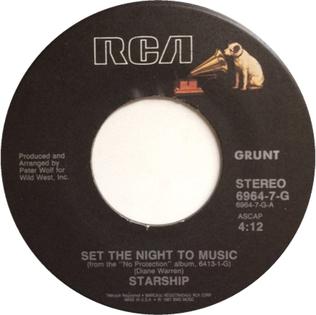
"Set the Night to Music" is a song written by Diane Warren and recorded by Starship for their LP, No Protection (1987). It became a major hit for Roberta Flack in 1991. Starship's original version became a Top 10 hit on the U.S. Billboard Adult Contemporary chart, reaching number nine in the spring of 1988, and also charted minorly in Canada. The song appeared at the end credits of the 1988 fantasy-comedy film Vice Versa starring Judge Reinhold and Fred Savage.
"I'm Not Dreaming" is a song performed by the American singer Zulema in 1978. She sang in a duet with a supposedly mysterious male singer.
The Beck Family was a musical family group from Philadelphia. With their music in the disco-funk genre, they had success with their hit single, "Can't Shake the Feeling" which charted nationally in 1979, the peak of the disco era. It registered in the Cash Box, Billboard and Record World charts. It also made the disco chart in Canada. They released an album which made the Billboard Soul LPs chart. They also had another single released during that time.
"Can't Shake the Feeling" was a hit single in 1979 for the Philadelphia R&B disco group the Beck Family. It did well in the US on the Cash Box and Billboard charts.
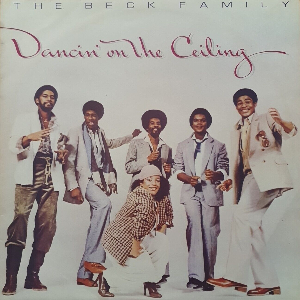
Dancin' on the Ceiling was a studio album by The Beck Family, an R&B vocal group from Philadelphia. It made the Billboard Soul LPs chart in 1979. It contained the hit song, "Can't Shake the Feeling" which registered on four USA charts and charted in Canada. Another song, "Words and Music" was a popular song for the UK dancefloors.
References
- ↑ Billboard , January 29, 1983 - Page 83 Billboard's Top Single Picks, Survey For Week Ending 1/29/83
- ↑ The Canadian Pop Music Encyclopedia - The Canadian Pop Music Encyclopedia M, MERCURY, Eric, with ERIC MERCURY AND ROBERTA FLACK
- ↑ Billboard, January 29, 1983 - Page 83 Billboard's Top Single Picks, Survey For Week Ending 1/29/83
- ↑ Cash Box , January 29, 1983 - Page 12 NEWS & REVIEWS, SINGLES, FEATURE PICS, POP
- ↑ Cash Box, February 5, 1983 - Page 27 BLACK CONTEMPORARY, UP AND COMING
- ↑ Cash Box, February 12, 1983 - Page 27 TOP lOO BLACK CONTEMPORARY SINGLES
- ↑ Cashbox Magazine.com - The CASH BOX Top 100 Black Contemporary, Week ending MARCH 12, 1983
- ↑ Billboard, March 12, 1983 - Page 54 Billboard Black Singles, Survey For Week ending 3/12/83
- ↑ Joel Whitburn Presents Top R & B/hip-hop Singles, 1942-2004, - Page 207
- ↑ Cash Box, March 19, 1983 - Page 32 TOP BLACK CONTEMPORARY SINGLES
- ↑ "RPM Top AC Singles - March 28, 1983" (PDF).